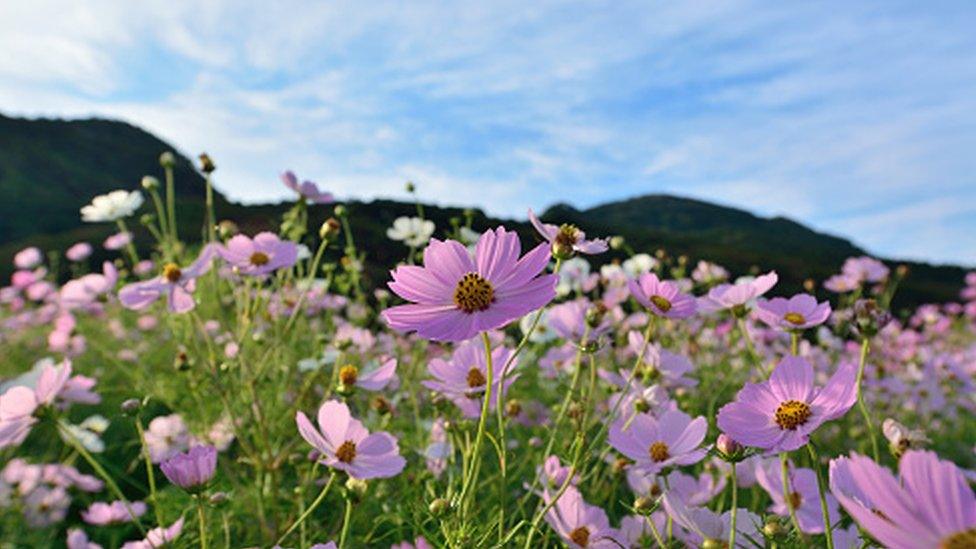Hay fever pollen 'DNA' may improve forecasts
- Published
- comments
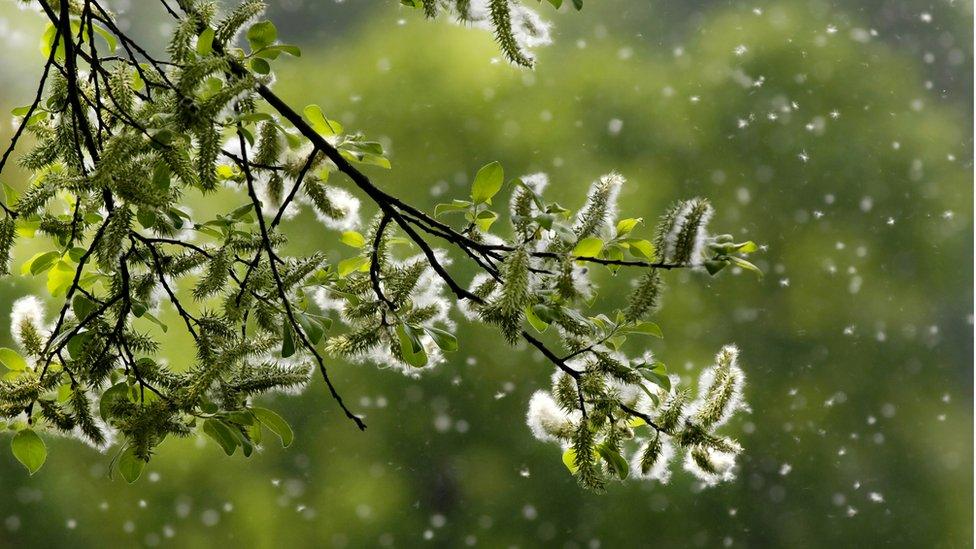
Trees, grass and weeds all produce pollen that can cause hay fever
Spring is here - and for a quarter of the those living in the UK, noses are beginning to twitch and eyes itch.
April is a month for tree pollen to make itself known, before grass pollen has hay fever sufferers looking for relief in summer.
But why is hay fever worse on some days rather than others, regardless of high or low pollen count forecasts?
Researchers led by a team at Bangor University think they are step closer to an answer.
Scientists have been good at predicting overall pollen levels, alerting those with hay fever to take precautions such as antihistamine tablets.
But Prof Simon Creer felt something was missing from the picture.
He has been leading the PollerGen project at Bangor, external, bringing together researchers from as far a field as Australia, along with the Met Office, the National Botanic Garden of Wales, grass experts at Aberystwyth University, and scientists from the universities of Worcester and Exeter.
"I'm a hay fever sufferer myself and I know that on some days, despite a high pollen forecast, I can be less affected than on other days when the forecast appears to be lower," he said.
"This led me and others to wonder whether it's the high load of pollen alone that causes the problem, or whether the different grass pollens cause different levels of reaction."
But pinpointing which different grass pollens might be a trigger for a person's hay fever faces some major obstacles.
There are hundreds of different grass strains, producing different pollen, with varying amounts, and all at slightly different times of the year.
Mix in weather patterns and different landscapes - and suddenly predicting what type of grass pollen is where becomes incredibly complex.
So PollerGen has been taking a different approach.
It has developed "environmental DNA" tests using a technique called "metabarcoding", with the first results published in the science journal Nature Ecology & Evolution, external.
Over an entire allergy season, they have been able to identify fragments of material caught in a sample of air, water or soil, and recognise the grass strains through unique DNA "barcodes".
For the first time it has enabled the teams to start examining the links between certain pollen types and the days on which plant allergy sufferers are most affected.
"Bringing a range of specialists together has enabled us to find initial answers," explained Dr Georgina Brennan, from Bangor, who set about analysing the environmental DNA data with Dr Catrin Potter from Aberystwyth,
"Our task is now to develop a clearer picture of where the pollen comes from, how it moves through the air and how different types of pollen can be linked to allergies."
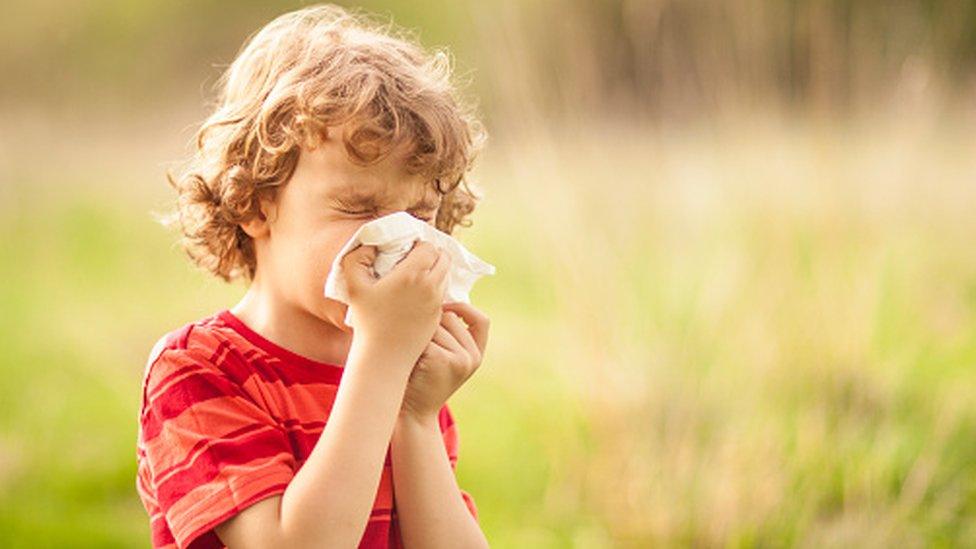
As many as 40% of children in the UK will suffer from hay fever at some point, says Allergy UK
But the researchers have not just been focusing on identifying different pollen strains - they have also been matching that to data from doctors' surgeries and hospital admissions.
Spikes in healthcare incidents and certain types of grass pollen release could help improve forecast warnings from the Met Office and, in turn, help individuals improve the way they deal with the problem.
The research charity Allergy UK said the latest findings brought more accurate pollen forecasts for allergy sufferers "a step closer".
"Helping us to understand grass pollen species in much more depth is very welcome, particularly if in the future it can be used to provide information to the population affected by grass pollen allergy," said its head of clinical services, Amena Warner.
"We are looking forward to further findings later this year and the benefits this will bring to those living with hay fever."
- Published6 June 2018
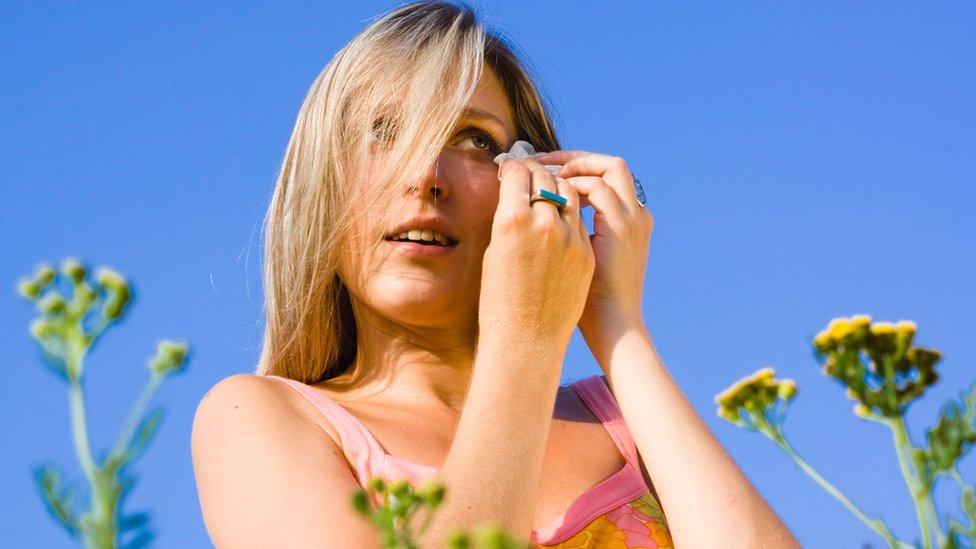
- Published22 June 2018

- Published20 April 2018
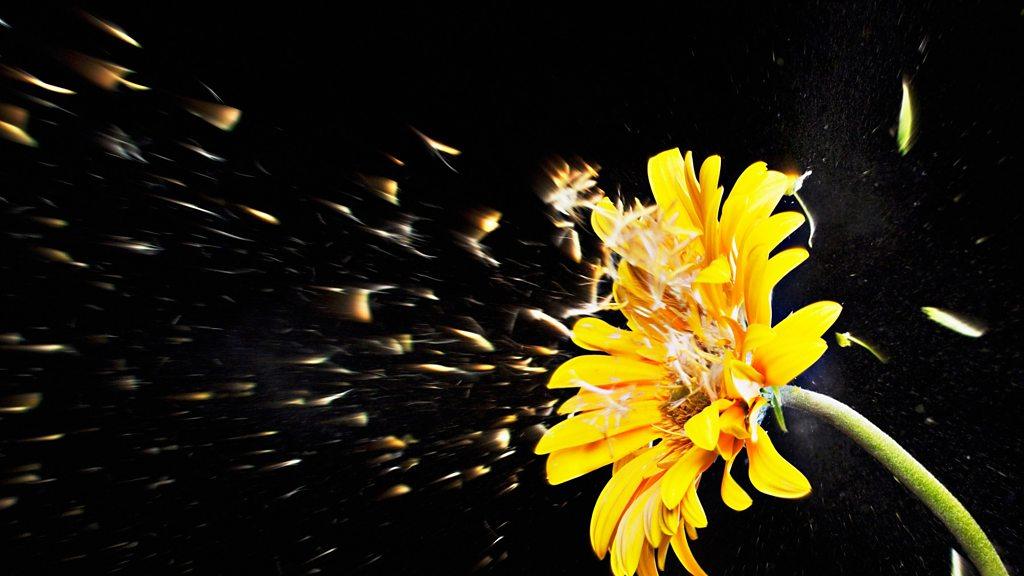
- Published25 June 2024

- Published20 May 2017
